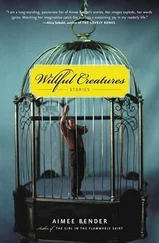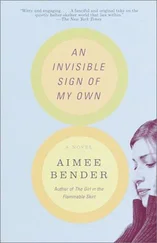The way it happened with Joseph was such that I was able to tell most of the story exactly as it had happened to me, and everybody focused on facts. I had seen him, yes. At his computer. He had spoken to me, he had called me Rosie. He’d seemed preoccupied, irritable, and then deeply, sweetly kind. He had no weapons nearby, he did not seem to be on drugs, and he’d told me, many times, that he was working. He had not greeted me at the door. I had broken in. My mother had been worried. She had sent me. She had called from Canada. Nova Scotia. He had been dressed. He had looked thin, but not emaciated. Not so different than his usual self. His refrigerator was empty of food except for butter, grape jelly, and a bread so old it crumbled into dust on contact. The bedroom window had been open, and the running theory of both my parents was that he had somehow jumped out of the window from the second floor, and maybe he had even packed himself a duffel bag, for some reason stashing it in the bushes, and that now he was on a journey. He needs time to search for himself, my mother said, through her tears, when she arrived the next day, in her Canadian wool sweater, bizarre for the warm April Los Angeles afternoon. Did he seem suicidal? the policemen asked, in their navy blue, with their pads of paper, when we filed a report the following Monday. I looked at my mother and said no. And I meant no. Alone, I said, a few times, instead.
That night, after I drew the line on the chair, I could not stop shaking. I left his bedroom and sat in the stairwell, in the outdoor corridor of Bedford Gardens, shaking. I crawled into his bed. No one entered or left the building. Time passed in blank sheets.
Shadows of banana leaf plants gathered around the mermaid fountain. Car lights, turning corners, cast shafts of light through the building. His damp, old pillow.
I was still holding the phone close to my cheek, like a blanket. It held no dial tone, as my mother had predicted. The strongest pull was just to fall asleep there, in the bed, for a long time, as if it had been put there on the balcony for that exact purpose-to catch me upon leaving, the mattress my endpoint-but I had calls to make, people to inform. The closest pay phone I’d seen was on the busy street, Vermont, just a couple of blocks away.
After a while, I unfolded myself from the bed, left the phone receiver on the comforter, and descended the stairs. The air was cool, and it was dark out, the deeper, thicker dark of nightfall. My brain felt emptied, as if a wind had blown it clear. The way water from a hose pushes dirt off the sidewalk. Not in a good or a bad way, just cleared.
Friday night bloomed in full form on the city streets, and Los Feliz was busying up for a weekend evening, restaurant umbrellas opened, table candles lit by electric wands. People sat outside in pairs, hands holding flaxen-colored glasses of wine. Forks and knives clinking on clean white plates. Outside the Jons grocery store, I could see a pay phone in a small glass booth, wedged into a far corner of the parking lot. I walked over, steadily. Alert. Pried open the folding door. Inside, the booth contained a half-bench and an old worn phone book lodged inside a black plastic cover. I took the seat. A tired-looking mother and son exited the store, balancing brown bags. Across the street, at the nearby triangular taco stand with the orange neon sign, two teenage girls picked at their hair, waiting in line, their wrists dressed with rows of gold bracelets. Cars drove up and down Vermont. They were all landscapes to look at, no different than a painting.
I faced the phone. Dug in my pocket for change. The silver square buttons on the pay phone itself were my sole lifeline to people. In them, a reminder that someone, once, had dug in a mine to find iron, had spent sweat, and hours, to bring up to land the supplies demanded by the phone-making company that then made an alloy and melted it into squares embossed with tiny numbers that coded a sequence that attached to electrical wiring that would pulse through poles and rubber-coated lines to ring in the household of the only person in the world I could bear to talk to.
Okay.
I faced the little squares. ABC. DEF. GHI.
George was probably out now, at some Friday Caltech event. In his car. Flooded with girls. Rising quickly, into places I could no longer reach. I knew his number by heart, and I fed the change into the slot, punching in the correct sequence. Then I sat very still, on the bench, while the wires linked and connected. The phone rang several times.
Hello?
I gripped the receiver. For a second, when he answered, I just pressed the plastic hard against my ear. I was so overcome with thankfulness that (a) he existed, and (b) he was nearby, and (c) he actually picked up.
Hi, I said. It’s Rose. Edelstein, I added.
Rose, he said. I know your voice. Come on. I’m really glad you called. Listen-
George, I said. It’s not about today.
I handled it awkwardly, he said. I just; I mean-
George, I said, louder.
He must’ve heard the jangle in my voice, because he stopped.
What? he said. What is it? Is Joe okay?
I stared through the window of the next-door liquor store, past the low shelves of candy bars to the clerk standing behind the counter. He had wavy black hair, and was resting on the expensive glowing bottles at his back, reading a Forbes .
Can you come out? I said. I’m at the Jons.
Where?
On Vermont, I said.
Is he okay?
I didn’t answer. My throat had filled.
I don’t know, I said, after a minute. I’ll call my dad too. I’m at the Jons, I said again, watching as the clerk rubbed his eye and turned a page of his magazine, folding and tucking it behind the others.
Did he disappear again? George asked.
Yes, I said, low.
The grocery store door slid open and a couple in their twenties exited, in biker gear, his arm looped around her waist. She was stirring her straw around the bottom of a slushie.
George made a hmm sound, into the phone. Then he said not to worry, we’d been through this before, it would be all right, and that he’d be over right away.
Half an hour, okay? he said.
What’s wrong? I heard a woman’s voice ask him, from the background corners of his room.
I’ll be here, I said, dimly. In the phone booth, I said. Like Superman.
Then I called my mother and left a message on the workshop machine telling her to come home, and I called my father and spoke with his secretary. Is he there? I asked. It’s about my brother. Tell him to call his daughter, I said.
He’s almost done for the day, she said. Are you home?
No, I said. I’m at the grocery store. I peered at the pay phone’s number, written in faint pen by someone’s hand on a thin strip of rectangular paper, attached under glass to the chrome body of the phone. It was a dinosaur, this phone. Everything about it, including the fragile shaky pen markings of a human hand, seemed destined for extinction.
Just tell him to come to Bedford Gardens, I said. He’ll understand.
Then I hung up, and swiveled my body to face the parking lot, waiting.
To see someone you love, in a bad setting, is one of the great barometers of gratitude. Pasadena is twenty minutes east of Los Feliz, more with traffic, more on Fridays, and the parking lot of the Jons filled and emptied about five more times before George arrived, each car spilling out stranger after stranger with a need for groceries. A willowy woman with long gray hair. A compact man in a three-piece blue suit. A shaggy guy with tons of piercings. All wrong. With every unfamiliarly shaped person that drove up, my jitteriness increased. I wanted, desperately, to match up my memory with the parking lot’s contents, and every new combination of nose, eyes, and mouth that stepped out was an affront to that hunger. If I’d even seen a neighbor, or my old flute teacher, or the lady who sold us bread at the bakery, I would’ve run out of the booth and hugged them. It’s me, Rose, Rose , I would say. Rose.
Читать дальше












